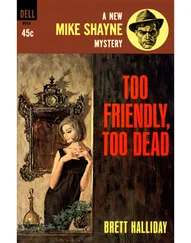Dan Fesperman - Lie in the Dark
Здесь есть возможность читать онлайн «Dan Fesperman - Lie in the Dark» весь текст электронной книги совершенно бесплатно (целиком полную версию без сокращений). В некоторых случаях можно слушать аудио, скачать через торрент в формате fb2 и присутствует краткое содержание. Жанр: Триллер, на английском языке. Описание произведения, (предисловие) а так же отзывы посетителей доступны на портале библиотеки ЛибКат.
- Название:Lie in the Dark
- Автор:
- Жанр:
- Год:неизвестен
- ISBN:нет данных
- Рейтинг книги:3 / 5. Голосов: 1
-
Избранное:Добавить в избранное
- Отзывы:
-
Ваша оценка:
- 60
- 1
- 2
- 3
- 4
- 5
Lie in the Dark: краткое содержание, описание и аннотация
Предлагаем к чтению аннотацию, описание, краткое содержание или предисловие (зависит от того, что написал сам автор книги «Lie in the Dark»). Если вы не нашли необходимую информацию о книге — напишите в комментариях, мы постараемся отыскать её.
Lie in the Dark — читать онлайн бесплатно полную книгу (весь текст) целиком
Ниже представлен текст книги, разбитый по страницам. Система сохранения места последней прочитанной страницы, позволяет с удобством читать онлайн бесплатно книгу «Lie in the Dark», без необходимости каждый раз заново искать на чём Вы остановились. Поставьте закладку, и сможете в любой момент перейти на страницу, на которой закончили чтение.
Интервал:
Закладка:
The next twenty minutes were a wandering exploration of the ways and means of the Russian art squads, fascinating but maddeningly distant from the subject at hand. Vlado interrupted a few times, but it was like trying to steer a derailed locomotive. Glavas would leap back on the tracks when he pleased.
“Next came the Western allies,” Glavas said, finally leaving the Russians behind. “Not much easier to deal with, but at least you weren’t worried they were shipping half of what they had back home on the very next boat. And the French would have been just as bad as the Russians if they’d had half a chance. Although don’t believe the Brits and the Americans weren’t taking things, too. Everybody got something out of it.
“The main collection point for the Americans was in Munich, but in those days there was still plenty of stuff scattered in the countryside, a lot of it out in the middle of nowhere, places where the Germans had stashed things in the last months of the war that still hadn’t been collected. We got out our maps and went off with our American guide on one subterranean tour after another, visiting old dungeons, caves and mines, cellars of convents and monasteries, wineries, breweries, castles. Everywhere we went was one magnificent collection after another. I couldn’t hold my eyes in my head for days at a time. And slowly we made progress. I had my list and began to tick things off, one by one. They’d crate our items for packing and ship them to a central point for sending back to Yugoslavia.
“And of course along the way we always kept looking out, as Pencic used to say, for ‘the lost lambs of art,’ the items wandering unclaimed in empty pastures. It was our job, he said, to welcome them into our flock as if they were family. And so we did.”
Glavas chuckled, smiling.
“I can still recall some of the tales we told, some of the finesse that it took to stake our claims. And I know that sometimes people just flat didn’t believe us. But in the end they often had no choice. Quite often these were not curators we were dealing with, anyway, except at the larger collection points. We only had to swindle clerks and low level officers, paper pushers who wouldn’t have known the difference between a Boticelli and a Beaujolais. So, in nine exhausting weeks we quite outdid ourselves. By the time we were ready to board our fine little white Fokker back to Sarajevo we had used up one hundred sixtyfive of our two hundred blank forms.”
“Weren’t you worried you’d be caught?”
“Oh, we knew we’d be caught, eventually anyway. And we were. By the late fifties it was quite apparent what had happened. Our behavior became a well-known minor outrage in come circles of the European art world, not so much for the volume and value of what we took, quite small in the grand scheme of things. What enraged them was the idea that two little people like us had pulled it off with such brazen ease and weren’t about to apologize. And of course memories grow old quickly, especially among the great hordes of army clerks who could no longer remember anything about what they’d signed over to us, much less the details of our little fictions and embellishments. But the ones at the top knew we’d made off with the goods.”
“So you had to give everything back?”
“Oh, no. We’d anticipated from the start we’d be found out. The rightful owners, we knew, would eventually become known in some cases. So we took precautions from the beginning that would make it as difficult as possible for these items to be retrieved. And that’s where the transfer file comes in.”
“How?”
“We knew we couldn’t leave them with our museum collections. Too easy to track down that way. So we immediately began to spread them around. Some pieces went to government ministries, beautiful paintings that would end up hanging behind some gray, grim clerk scribbling on forms all day. The icons went to churches, usually small rural parishes that were more than happy to have them. It was the one bit of government benevolence for religion that Tito ever allowed.
“Some pieces went to a few of the big state-run hotels. But the bulk went to individuals. Party functionaries. Ministry bigwigs. It was the moral equivalent, I suppose, of a millionaire collector hiding pieces in his closet. But it was the best way to display them at all while still ensuring we’d keep them in the country. So once outsiders started asking if they might please have these items back, we could honestly say, ‘Oh, dear me, these pieces are no longer in our museums, and to track them down would take ages, and, well, we’ll certainly get on the job but it can’t possibly be a priority, you see.’ Only we knew all along where everything was.”
“Because it was all recorded in the transfer files.”
“Yes. And I was their lord and master. Even as my duties here at the museum began to broaden, I held on to this role. Partly because I knew more about it than anyone else, but partly because I felt an emotional attachment. I’d rescued them and brought them back.
“But then a funny thing happened. All the Party officials and ministry chieftains who were beneficiaries of our scheme found that they quite liked to have nice artworks in their homes. And of course, their underlings were all jealous. They wanted art for their houses, too. As the bureaucracy grew, so did the demand. And of course we had nothing left to give them then but our own museum pieces.”
“And did you?”
“But of course. Just because they weren’t ministers didn’t mean they couldn’t make your life miserable if you crossed them. So we complied, and the transfer files began to grow. Museum art began moving, piece by piece.”
He chuckled again.
“I even ended up with a piece, one of the original transfer items, in fact.”
He pointed across the room to the oil painting that had so impressed Vlado when he’d first entered. It was a verdant field of lilies in the light of later afternoon, an impressionist masterpiece.
“It’s nineteenth century. Chances are it belonged in a small museum in Stuttgart. ‘Tut mir leid, ’ as the Germans say.”
“Aren’t you worried it will be damaged?”
“At first I was. When the war started I put it in the building’s cellar in its own locked cabinet. But after a while I couldn’t stand the thought of it down there with the mice and the rusting bicycles and the grubby street urchins, with the huddled families too scared to move every time the shelling started. So I went down one night to get it, and a good thing I did. The cellar was ankle deep in water from pipes that had burst in the shelling. The water was only a few inches from destroying it altogether. It was strange. It was exactly how they’d found a lot of the old German sites in cellars and mine shafts. In standing water or encrusted with salt. Blighted with mildew. Some things ruined or half ruined. Others caked in dust or nibbled by mice, or buried alive by cave-ins. They’d shoved paintings between mattresses, draped them with lingerie, blankets, and lace curtains. Amazing what they’d done with some of it. And there was my own precious old canvas, slowly dying as the waters rose. So I brought it up here. If the shells get it, if some sniper puts a hole in it, well, better a quick death than slow torture by moisture and mildew. At least this way I can enjoy it until either it or me is finished. Anyhow, where was I?”
Vlado checked his notebook. “Art was moving out of the museums, you said, trickling away a piece at a time.”
“Yes, and strictly by the book. Certainly not just anyone could come in and ask to ‘borrow’ a painting for the rest of their lives. You had to have some connections, or some weight with the party. Some asked but were turned down. I got to help decide who was worthy, which of course meant certain advantages for me. Bartering points. This carpet you see. That chair you’re sitting on. One could do quite well in my position while still assuring that the art was safe, catalogued, and insured and carefully accounted for.
Читать дальшеИнтервал:
Закладка:
Похожие книги на «Lie in the Dark»
Представляем Вашему вниманию похожие книги на «Lie in the Dark» списком для выбора. Мы отобрали схожую по названию и смыслу литературу в надежде предоставить читателям больше вариантов отыскать новые, интересные, ещё непрочитанные произведения.
Обсуждение, отзывы о книге «Lie in the Dark» и просто собственные мнения читателей. Оставьте ваши комментарии, напишите, что Вы думаете о произведении, его смысле или главных героях. Укажите что конкретно понравилось, а что нет, и почему Вы так считаете.












